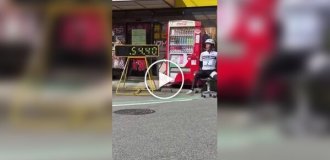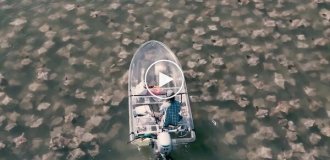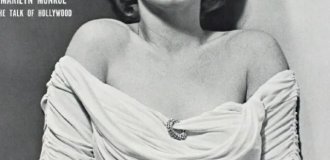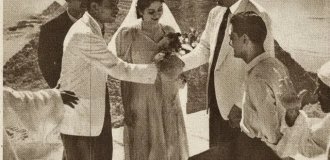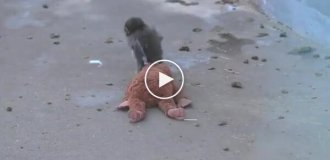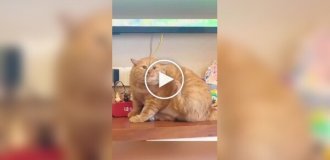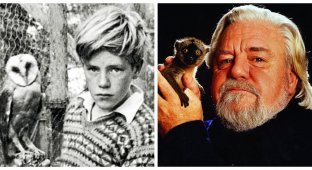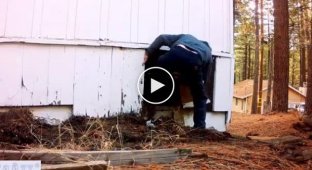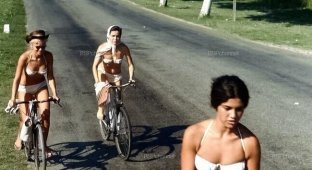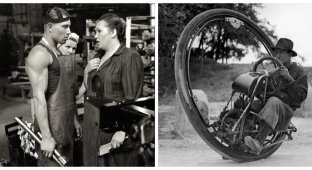The Good Spirit of the Drunk Forest — 100 Years Since Gerald Durrell’s Birth (25 photos)
Gerald Durrell became famous for his books about animals and nature. They were so funny and fascinating that even those who didn't care about elephants, monkeys or hairy frogs read them with bated breath. Perhaps because Durrell, while describing animals, didn't forget about people. 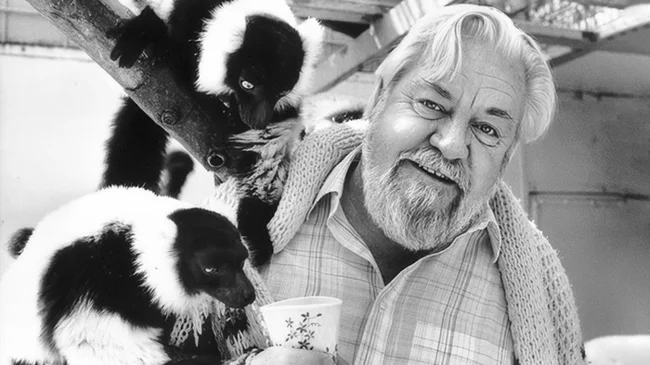
He didn't look like a typical modern animal rights activist at all - aggressive, intolerant of other opinions, eating grass. Durrell loved meat, alcohol and female company, and at the same time did a thousand times more to preserve the environment than many of today's ecology holier-than-thou. January 7 marks the 100th anniversary of his birth.
Southern People
The family in which Durrell was born and raised gave the world at least two great writers - Lawrence and Gerald. The fame of the Durrell brothers, in turn, forced their ex-wives, Nancy and Jackie, as well as their younger sister Margot, to take up the pen. In general, the atmosphere in the family was clearly conducive to creativity, and the cheerful and entertaining way in which Gerald described it in his books, especially in the story "My Family and Other Animals", eventually resulted in a kind of cult: two popular TV series were filmed about the adventures of the Durrells on the island of Corfu, and many biographical studies were written. 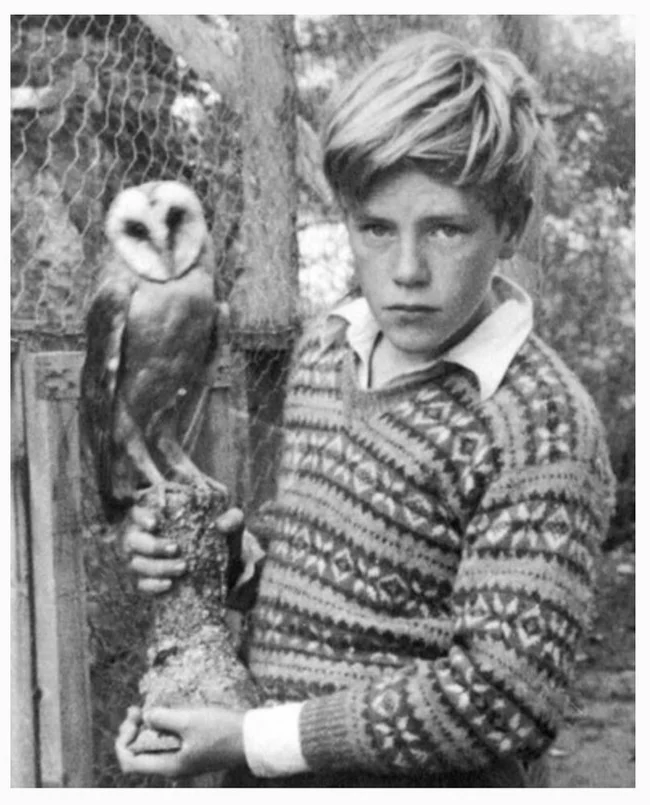
Why Corfu? Because the Durrells really didn't like living in their native Britain, especially since it wasn't really that native to them. Not only Gerald and his older brothers Larry (Lawrence), Leslie and sister Margot (Margaret), but also their parents Lawrence and Louise were born in India, which was a British colony at the time. When the father of the family, a civil engineer, died of a stroke at the age of 43, the Durrells were forced to return to their historical homeland and found it rather damp and dreary.
Larry experienced this first of all, since he was torn from the Indian paradise at the age of 11 and sent to England to study, which he could not forgive his parents for a long time. Now Louise was convinced that the cold of Albion and the primness of its inhabitants were not at all to her liking, accustomed to the southern warmth - weather and soul. She had almost no friends in her historical homeland, money was melting away, and she began to take to the bottle more and more often. This passion is sometimes explained by her Irish blood. However, Louise's addiction to alcohol did not seem to be as big a problem as Gerald's alcoholism later became. Rather, it was one of her eccentricities, like the ability to see ghosts, for example, her late husband. Otherwise, she remained a gentle and caring mother. Another thing is that the bottles were always in sight, and Jerry got a taste for booze at an age when other children do not even think to be interested in such things.
A Strange Child 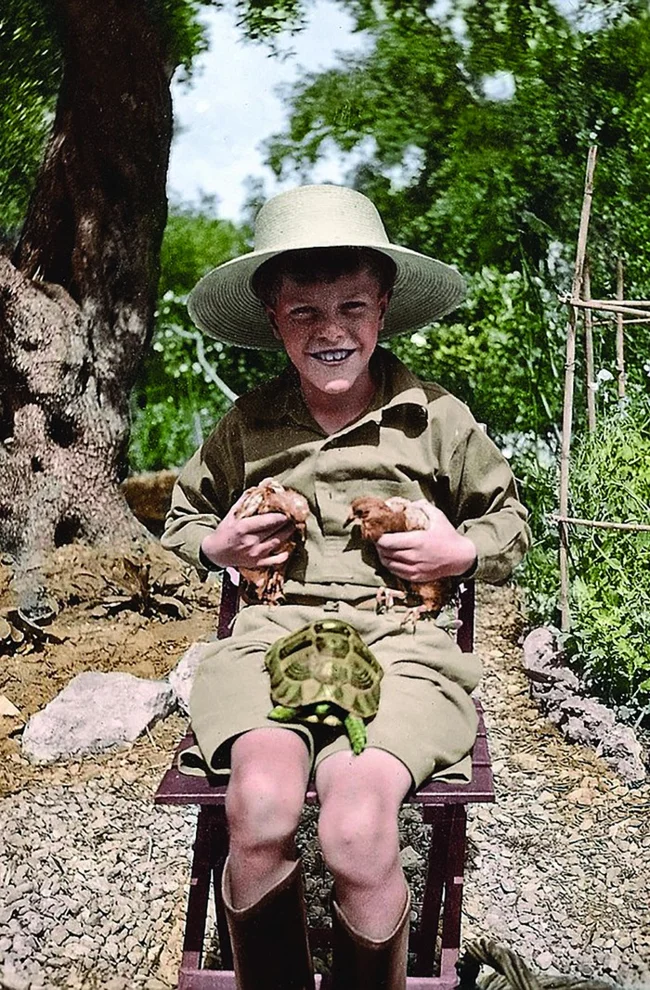
But it was still a long way to the excesses with alcohol, and for now little Jerry surprised those around him with his incredible love for the animal world. Almost the first word he uttered was "zoo". Where this love came from is completely unclear, since no one in the family shared Jerry's interest in snails and frogs, and some, for example his brother Larry, were even frightened by this interest - they thought it was a sign of abnormality.
Every day the Durrells' house was filled with new creatures found by Jerry in nature, which he fed and carefully studied. Louise was a free-thinking person and preferred to limit her children less, believing that they would figure everything out themselves. 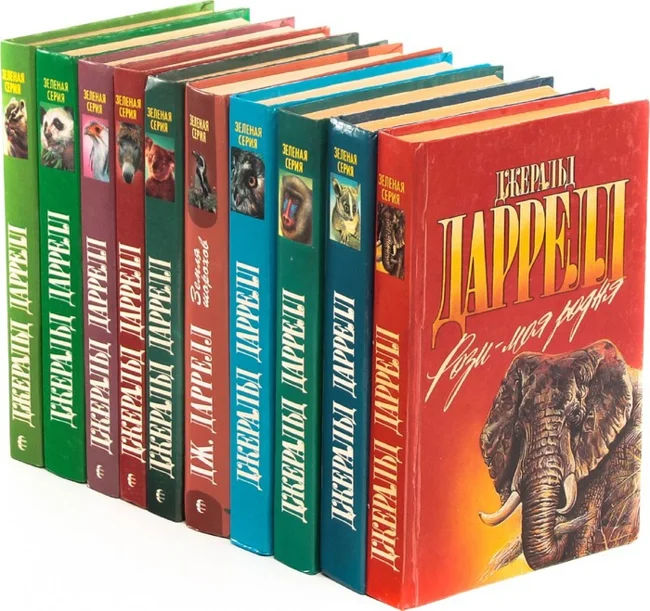
Some concern about Jerry arose when he was diagnosed with the so-called school disease: either an unwillingness or an inability to study methodically and be disciplined. Because of this "disease", the future honorary professor of many universities around the world did not receive not only a special biological education, but even a regular school education. British teachers advised Louise to transfer Jerry to home schooling.
Back to Paradise
Meanwhile, Larry's older brother, who was 20, got married and settled on the Greek island of Corfu, far from the chilly England. At that time, the island was not yet developed by tourists, and life there cost pennies. After reading the enthusiastic letters of her eldest son, the brave Louise decided to move to Corfu with the rest of the children. 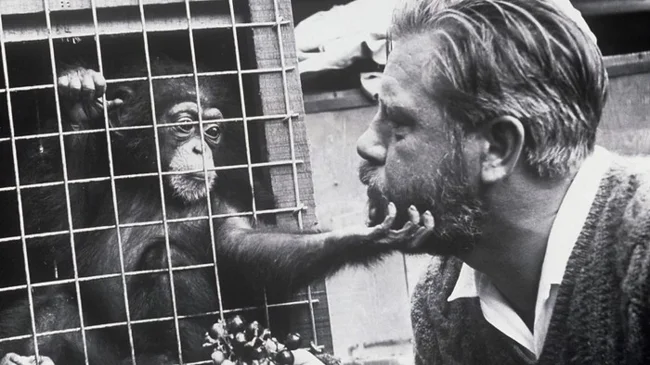
Thus began an idyllic period in the Durrells' life (from 1935 to 1939), later described by Gerald and partly by Lawrence. True, in reality everything was not as wonderful as in the books. For several months the family could not receive a money transfer and lived from hand to mouth, eating what compassionate neighbors gave them and what the children managed to catch and gather in the surrounding area. Life on the island was quite medieval: this concerned not only the lack of electricity and other benefits of civilization, but also the moral foundations that the freedom-loving and eccentric Durrells began to undermine little by little. For example, the sight of Margot sunbathing in a revealing swimsuit confused the locals.
Ten-year-old Jerry immersed himself in studying the fauna of the southern island. In addition, in Corfu he found a mentor that any person could dream of, and not just a teenager with "school disease". Theodore Stephanides, like the Durrells, was born in India, fought in the First World War, then published several books of poetry, studied medicine in Paris, and shortly before our heroes arrived, opened the first X-ray room on the island. He was a man of sharp mind and encyclopedic knowledge - daily communication with him replaced school, college, and university for Gerald. 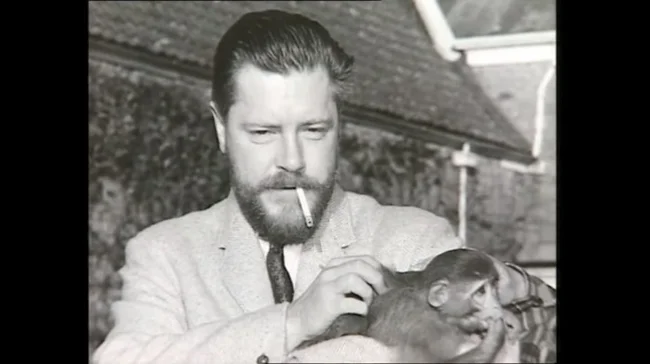
"The Boy on the Beasts"
Jerry and Larry were friends with Stephanides until his death. They sent him manuscripts of all their "Greek" books to proofread, and they say he edited them very meticulously.
Lawrence spent almost half his life in Greece, and for Gerald the Mediterranean paradise ended in 1939, when he and his mother returned to Great Britain - the outbreak of World War II and the need to settle financial issues forced them to leave the island. 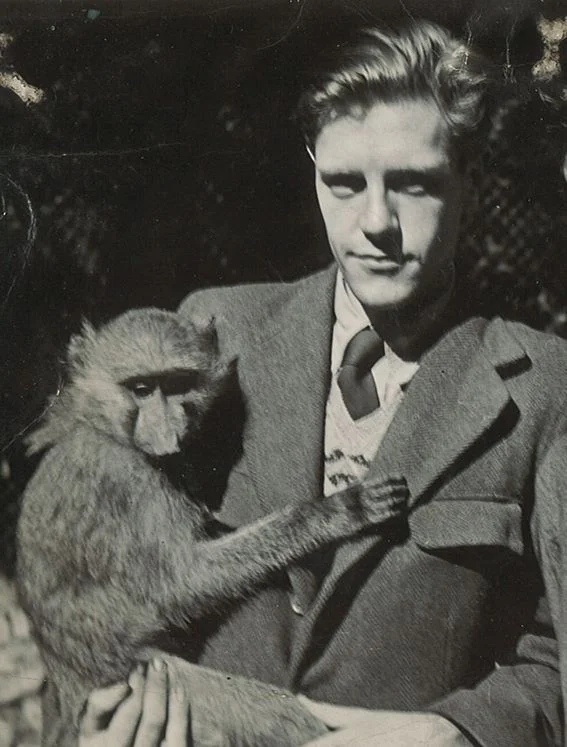
At the border, the customs officer, seeing the Durrells' luggage, which, thanks to Gerry, consisted of cages with a variety of animals, noted in the documents without a smile: "traveling circus with a staff of employees."
Louise did not lose hope that Gerry would be able to continue his studies at school, but gaps in knowledge and a relapse of the "illness" prevented this. But a new tutor appeared – Harold Binns, who instilled in the wild teenager a love of literature and good English. 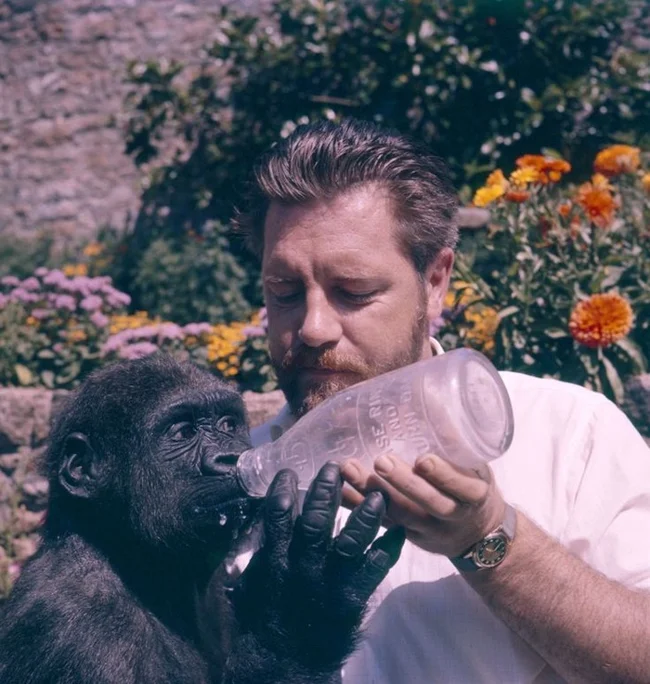
But Jerry's main focus was still animals. At first, he got a job as an assistant in a pet store, then, when he was declared unfit for military service at 18 due to a defect in his sinuses, he went to a farm, where he looked after horses and taught everyone who wanted to ride. Jerry also courted the ladies who came to learn to ride – this revealed another side of his personality: even subsequent marriages did not prevent him from being a pretty ladies' man.
Soon after the end of the war, after an interview at the London Zoological Society, Gerald was hired at Whipsnade Zoo, located in Bedfordshire. Without any documents about even a school education, but a gushing knowledge of animals, the young man was assigned, as he himself called it, "animal boy" - a general employee. 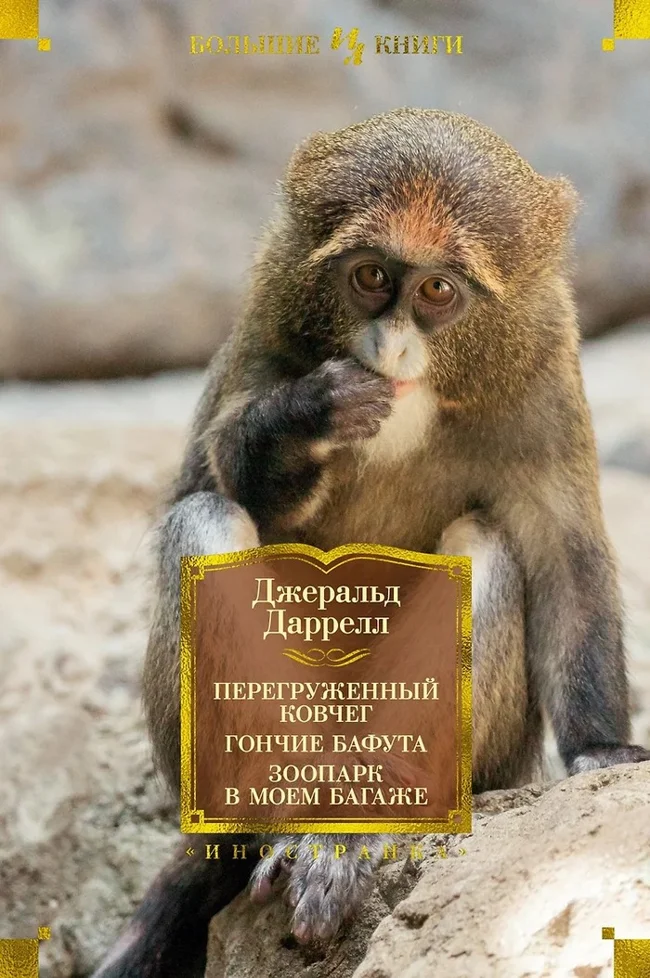
African debut
In Whipsnade, Durrell formulated the "zoo theory" (he had no doubt that someday he would definitely open his own). In his view, a zoo should serve not only entertainment and scientific work, but also the preservation of endangered species - and their number in the middle of the 20th century, 20 years before the first edition of the International Red Book, was growing rapidly. Durrell became one of the first and main animal rights activists.
In addition, he believed that animals should live not in cages, but in their natural habitat. 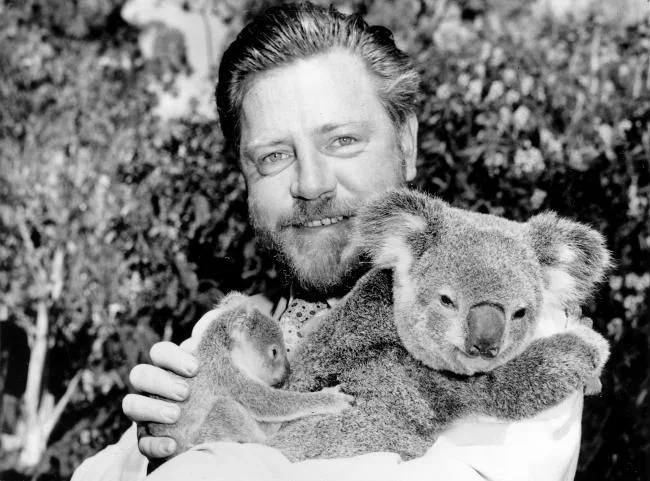
At 21, Gerald became one step closer to realizing his dream: as an adult, he received part of his father's inheritance and, although at that time he was already very partial to women and drink, he preferred to spend the money not on them, but on zoological expeditions to Africa.
He went to the first of them, to British Cameroon, in 1947 with the experienced ornithologist John Yeland. There, Gerry got several rare animals and pappataci fever to boot. 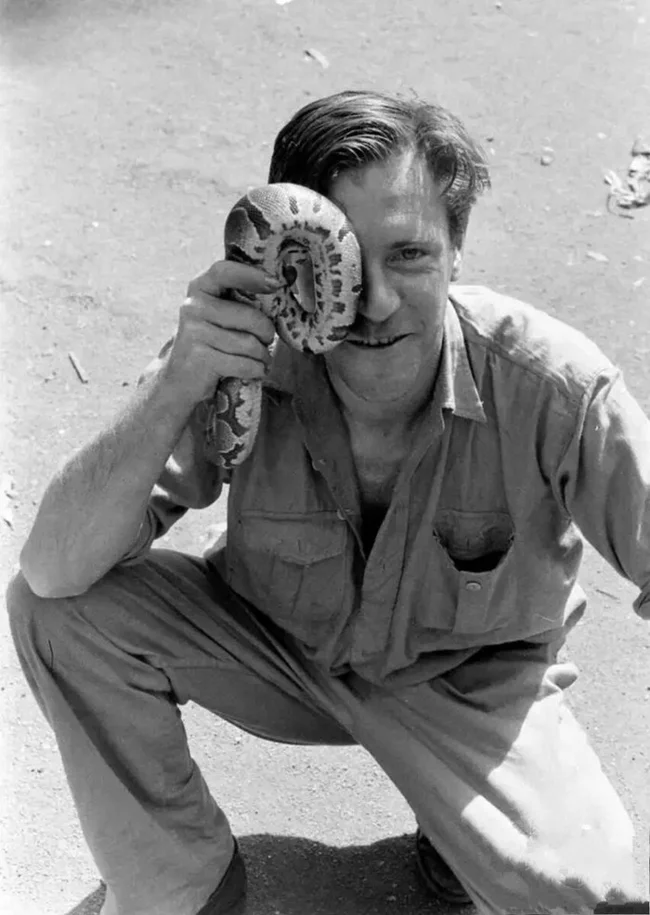
In Cameroon, the friends met the venerable zoo collector Cecil Webb, who looked down on them as worthless amateurs until Darrell showed him a captured angwantibo, a rare primate of the loris family. Webb was impressed, since he himself had long and unsuccessfully tried to find this elusive animal, leading a nocturnal lifestyle.
An Unsentimental Journey
Durrell was not sentimental in his love for animals. He ate meat, believing that the eating of one by another is a biological law, and it is not the business of the human mind to change it. And, what is completely unthinkable for modern animal rights activists, during the second Cameroon expedition (1949), Durrell killed a male and female hippopotamus in order to get their baby. True, their death was in vain - the baby was almost immediately eaten by a crocodile. 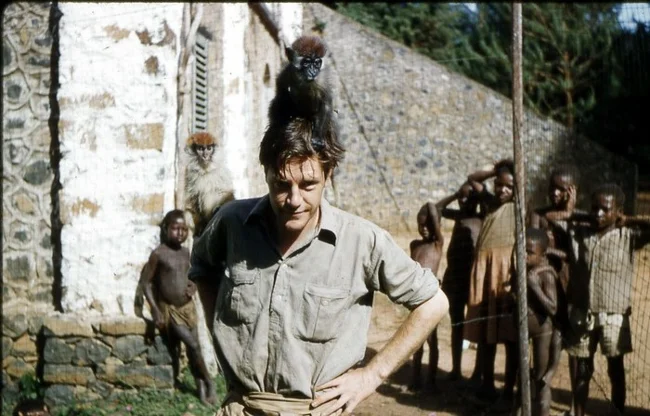
Durrell did not suffer from a white man's guilt complex and not only did not fawn on the natives, but he sometimes communicated with them quite harshly, realizing that for them he was a representative of a hostile world, which they, if anything, would not spare.
Nevertheless, on the second Cameroon expedition (he was in it with Ken Smith, already without Yeland), Gerald, on the basis of his love for whiskey, became friends with the local ruler, Ahirimbi II. Thanks to the patronage of his new friend, Darrell got hold of quite a few animals for his collection, but overall the trip was a loss-making one, as the expedition failed to fulfill the main orders from British zoos for large animals – a gorilla, a hippopotamus and an elephant. 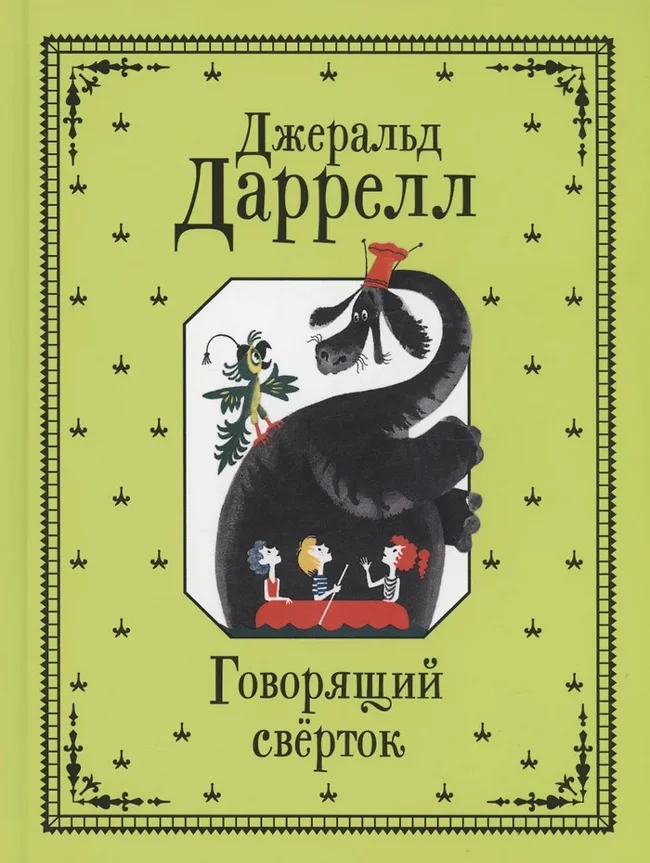
The third expedition, to British Guiana (1950), was spent with the rest of his father's inheritance, and Gerald went to get a job. This turned out to be not so easy: along with his initial fame in zoological circles, he also had influential ill-wishers, in particular the chief intendant of the London Zoo, George Cansdale. He held a grudge against Darrell, who never missed an opportunity to criticize his establishment for being more interested in money than in science. Cansdale considered himself an expert on the fauna of West Africa, and Darrell an upstart who was encroaching on his territory.
A completely different opera
Gerald had to make ends meet with small jobs, and by that time he had a wife. An aspiring opera singer, Jackie (Jacqueline) Wolfden, agreed to put her career on hold for a while to help the poor but very charming naturalist. Later, in her memoirs, Animals in My Bed, she wrote that Gerry, who had previously seemed like a superficial joker, appeared to her as a completely different person when she saw how lovingly he cared for his numerous pets. 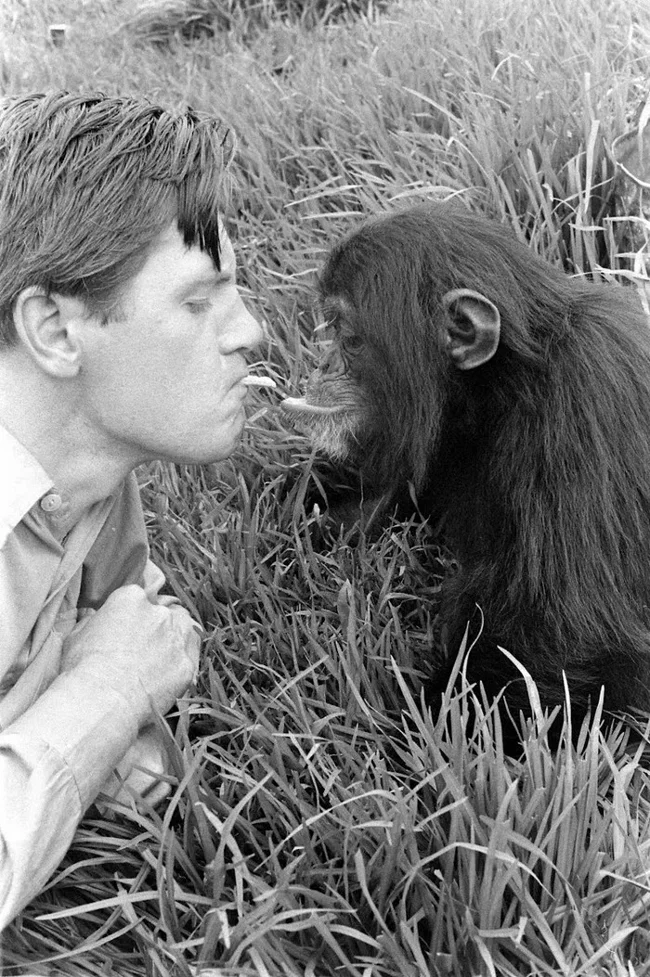
Darrell's charisma was such that Jackie broke off relations with her parents when she learned that they were against her marriage to a penniless madman. And she never returned to her opera career, becoming her husband's faithful assistant.
There was so little money that when Darrell needed funds for treatment for malaria, the couple switched to bread and tea. They lived with Gerald's sister Margaret. 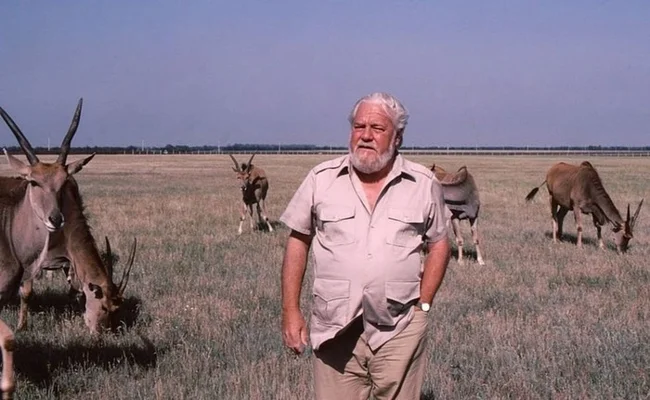
One day, their elder brother Lawrence, already a well-known writer at the time, came to visit them, famous for his "Black Book", created under the influence of his close friend Henry Miller. When the conversation turned to where the newlyweds could get money, he advised Darrell to write something about his adventures in Africa - after all, there were many of them, and Jerry had a sharp tongue. "Besides, the British love stories about animals," Larry added.
The first pancake is never lumpy
Gerald followed the advice and wrote the story "Hunting the Hairy Frog", keeping in mind the main writing advice of his brother: "never be boring." Jackie had to correct almost every word – the consequences of the “school disease” were taking their toll – but the language of the story was magnificent. They decided to send the manuscript to BBC radio – and in December 1951 the young zoologist was invited to read it live on air. 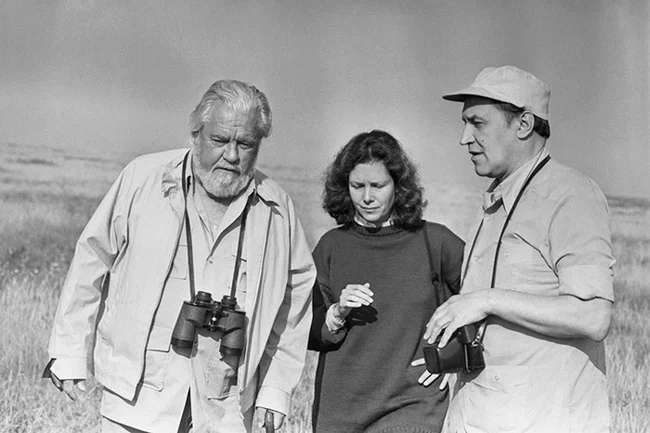
Having received many enthusiastic letters after the broadcast, Durrell took up writing a whole book. This is how “The Overloaded Ark” appeared; it was published in 1953, and was soon published in the USA. It was followed by “Three Tickets to Adventure” and “The Hounds of Bafut” – all about the same first African expeditions.
With the royalties, Gerald and Jackie went to South America - Argentina and Paraguay. Most of the animals collected on this trip had to be left behind, as a coup d'etat took place in Paraguay, and the Durrells were forced to urgently evacuate on a light plane. But there was material for a new story - "Under the Canopy of the Drunken Forest" (1955). 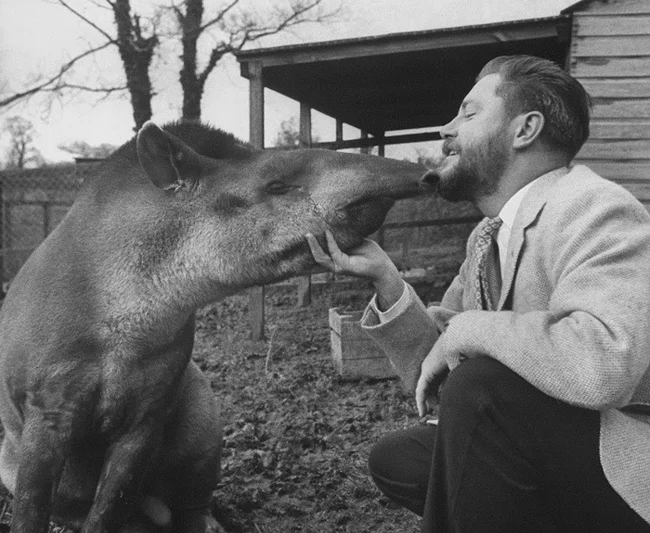
Having strengthened as a writer, Durrell moved from describing recent trips to memories of life in Corfu. This is how the international bestseller "My Family and Other Animals" (1958) appeared, probably Durrell's most quoted book.
Later he published two more stories about that period, Birds, Beasts and Relatives (1969) and The Garden of the Gods (1978). They make up the so-called Corfu trilogy, but the writer himself admitted that only the first of the three books can be considered documentary; the second and especially the third contain a lot of fiction. The supply of real stories was running out, and he had to fantasize. 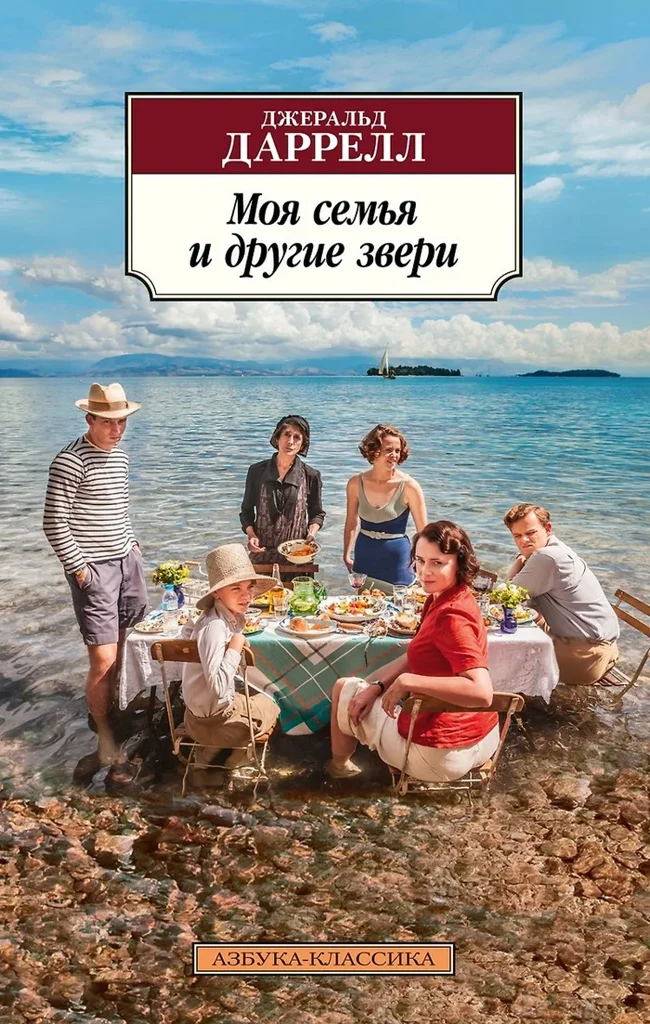
Cooler than Big Brother
By the end of the 1950s, the semi-literate dropout and eccentric Gerald had become a much more popular writer than his older brother, the refined aesthete and erotomaniac Lawrence, even though the latter was at that time releasing one book after another in his tetralogy, The Alexandria Quartet.
The Quartet was a success, but mainly among intellectuals, while Gerald's prose was suitable for a wide range of readers. And not at all because "the British love stories about animals." The author's intonation was the most captivating – Darrell's light, witty, and full of love for life prose could dispel the most severe melancholy. 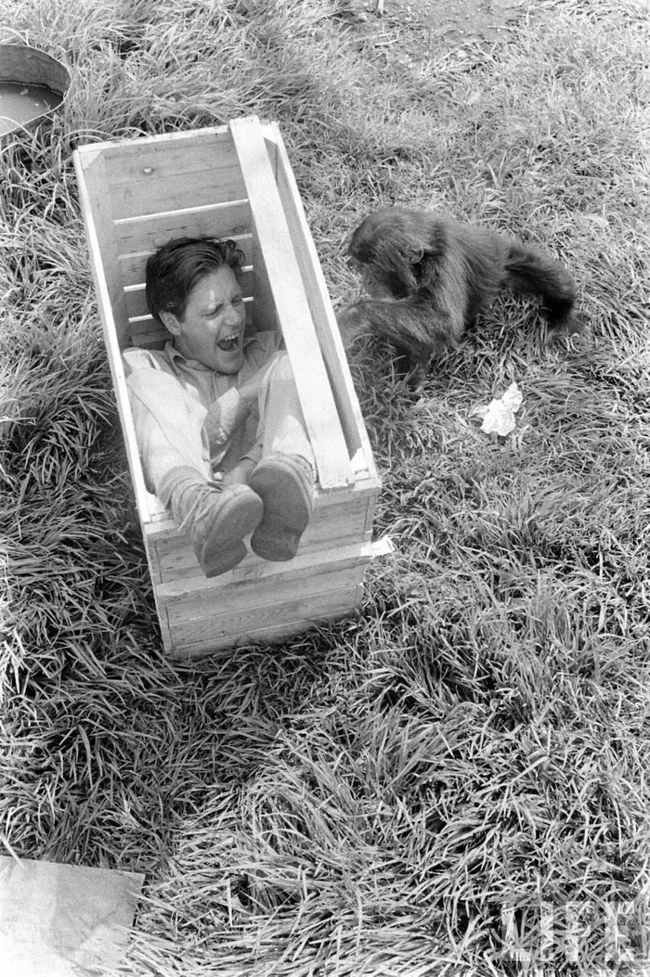
In addition, in 1958 Gerald also penetrated television: the documentary series "Bafut Hounds" filmed with his participation was released, followed by "Zoo in My Pocket", "Two in the Bush" and others.
In the late 1950s, Gerald began to be published in the USSR – in our country he became one of the most popular foreign authors. Brother Larry for the Soviet reader at that time was just a character in "My Family and Other Animals". Lawrence was not translated not only because of his whimsical language and the ideologically alien to socialist realism focus on the personal lives of the characters, but also because the author served for many years in the British Foreign Office and, in particular, conducted intelligence work in Yugoslavia and Cyprus.
A Dream and a Bottle
Gerald's success as a writer allowed him to fulfill his main dream - to create his own zoo, operating in accordance with his theory. The Jersey Zoo (that is, on the island of Jersey) opened in 1959. Its emblem depicts the Mauritian dodo - a bird completely exterminated in the 17th century - as a symbol of the preservation of endangered species and a warning to humanity. 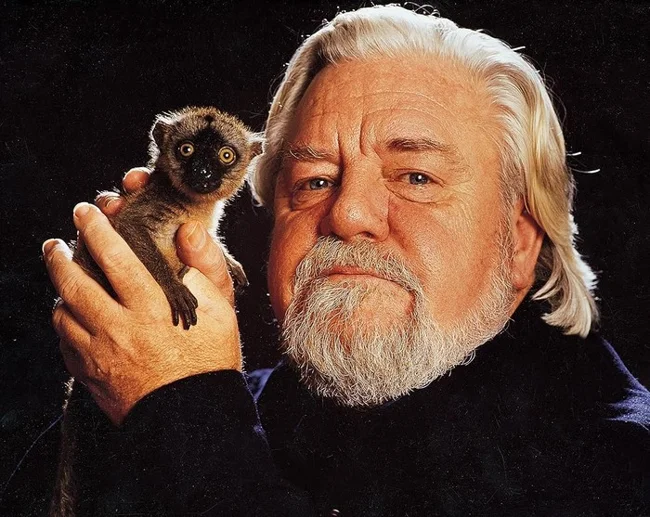
The zoo was based on rare and endangered species of animals and birds: the red ruffed lemur, the crested baboon, the wrinkled hornbill and others.
The royalties from the books were not enough to support such a large farm, and in 1963, Jerry and Jackie founded the Jersey Wildlife Conservation Foundation, now called the Durrell Foundation.
The dream came true, but Gerald Durrell did not look like a happy man. His addiction to alcohol was getting out of control - the writer and naturalist was forced to undergo treatment in various clinics for several years, although without much success. Until the end of his life, he never parted with a flask of whiskey, regularly "refilling" it, unless, of course, there was a noisy party nearby, which he also loved. Tired of living with an alcoholic and his frequent affairs on the side, Jackie left her husband. 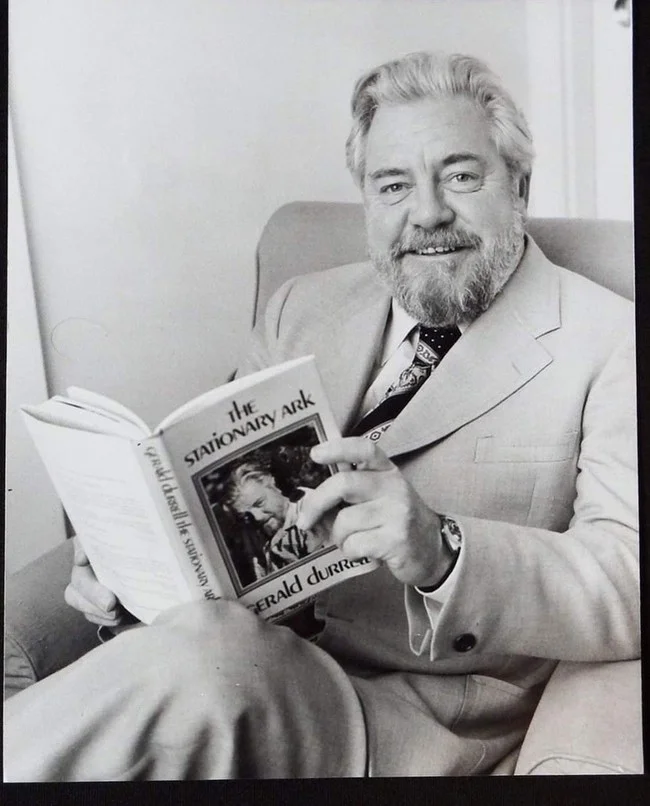
Sometimes it is written that Durrell became depressed after he saw what the tourist industry had turned his "native" Corfu into, and yet the pilgrimage there began precisely thanks to his book. But Durrell was not such a fragile subject. When asked about this, he said that he was not delighted with the changes on the island, but was forced to admit that tourism had greatly improved the well-being of the locals.
A Knight in a Soviet Nature Reserve
In 1984, another of Durrell's long-standing dreams came true - he went on a trip to the USSR. A state that occupied a sixth of the land, contained huge reserves, nature reserves, and simply owned thousands of square kilometers of pristine nature - this could not fail to attract the no longer young naturalist. 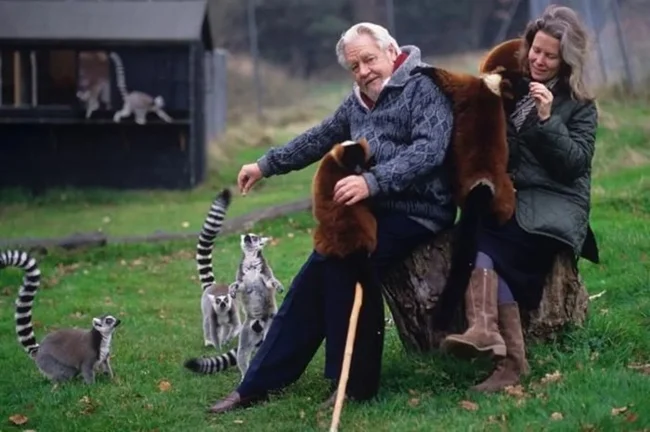
The visit was prepared and coordinated for several years: some reserves were located near the border or some secret facilities.
By that time, the writer was already married for the second time - to an American, Lee McGeorge, 24 years younger than him. Together they wrote The Amateur Naturalist, a compendium of information for those who want to observe the natural world in a meaningful way, and it became Durrell's biggest bestseller. 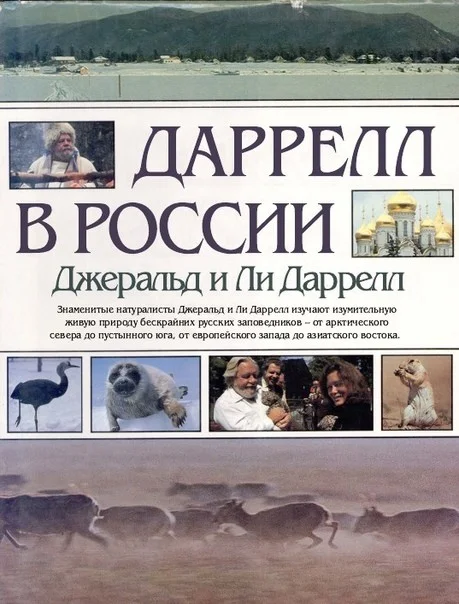
No alcoholism could stop the intensity and scope of Durrell's projects: he traveled all over the world, released TV series, supervised a lot of publishing and educational projects, founded the Durrell Academy of Nature Conservation, which was engaged in the science of restoring endangered populations. In 1982, the Queen of Great Britain granted him a knighthood.
The visit to the USSR lasted for two years. The Durrells visited various places - from the Moscow Zoo to the Chatkal Nature Reserve in the Tien Shan. Everywhere they were greeted with vodka and caviar. 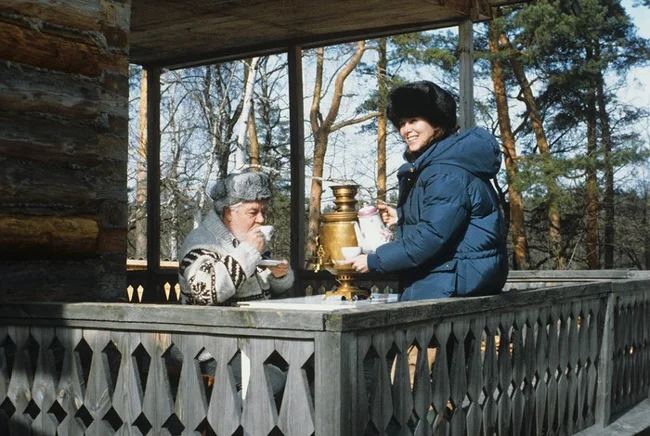
Fireflies Will Show You the Way
In 1988, a capsule was ceremoniously buried on the grounds of Jersey Zoo with a message to future generations who, as Durrell hoped, would reap the benefits of his work to preserve the earth's flora and fauna: "We hope that the fireflies will show you the way at night, and the butterflies in the hedgerows and woods will greet you. We hope that your dawns will be filled with the song of birds and that the sound of their wings and the iridescent colors will amaze you. We hope that our planet will continue to be inhabited by extraordinary creatures who will enchant you and enrich your lives as they have done for us. We hope that you will be grateful to have been born into such a magical world."
A year before his 70th birthday, Durrell was diagnosed with cirrhosis and liver cancer. Doctors performed a liver transplant on him - the writer arrived for the planned operation tipsy, as he did not expect to survive it. The liver took root, but the immune-suppressing drugs intended to help it do so led to the body becoming vulnerable to infection, and Durrell developed sepsis. Three weeks after his 70th birthday, on January 30, 1995, he died. 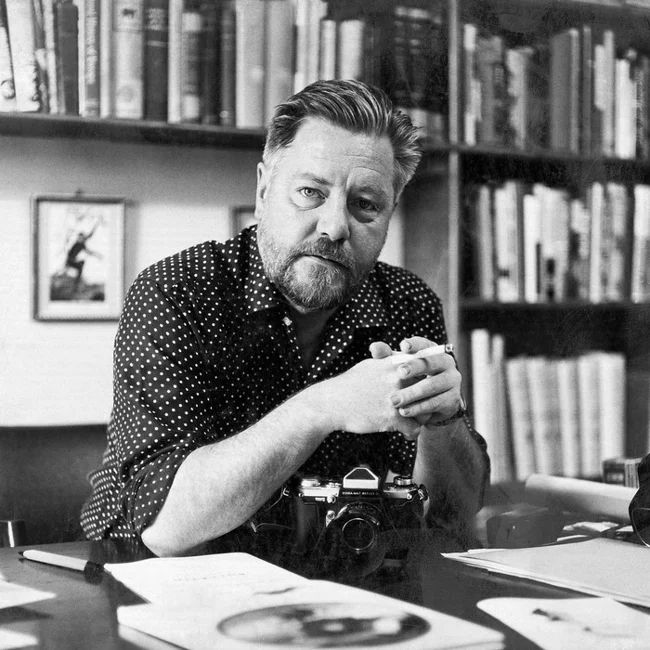
In the summer of 1994, while Gerald was recovering from surgery, his zoo was the scene of a terrorist attack: an extremist animal rights activist detonated a bomb in protest at the alleged exploitation of animals for profit on the island of Jersey. The explosion occurred in the visitor's center, but fortunately no one was hurt. A new era of animal rights was dawning, in which such actions had become the norm, and Darrell, with his old methods and good humor, seemed to have no place in it.
